Lebanon mayor speaks to Tippecanoe County residents about the IEDC's LEAP project
WEST LAFAYETTE, Ind. — Residents along the Wabash River have criticized the Indiana’s Economic Development Corp.’s plan to pipe up to 100 million gallons of water a day from Tippecanoe County to Lebanon — one-third of the width of the state.
Through the controversy, one of the plan’s biggest supporters has stayed firm on the pipeline construction — that supporter is Matt Gentry, Lebanon’s mayor.
When Gentry accepted an invitation to speak Tuesday with the West Lafayette-based grassroots group, Stop the Water Steal, it came as a surprise to many.
Gentry's support lies in the fact that Lebanon is the epicenter of the state's economic development corporation's Limitless Exploration/Advanced Pace (LEAP) project. Lebanon, however, does not have the water resources for the development, and the project proposes to pull the water it needs from Tippecanoe County aquifers lying beneath or near the Wabash River.
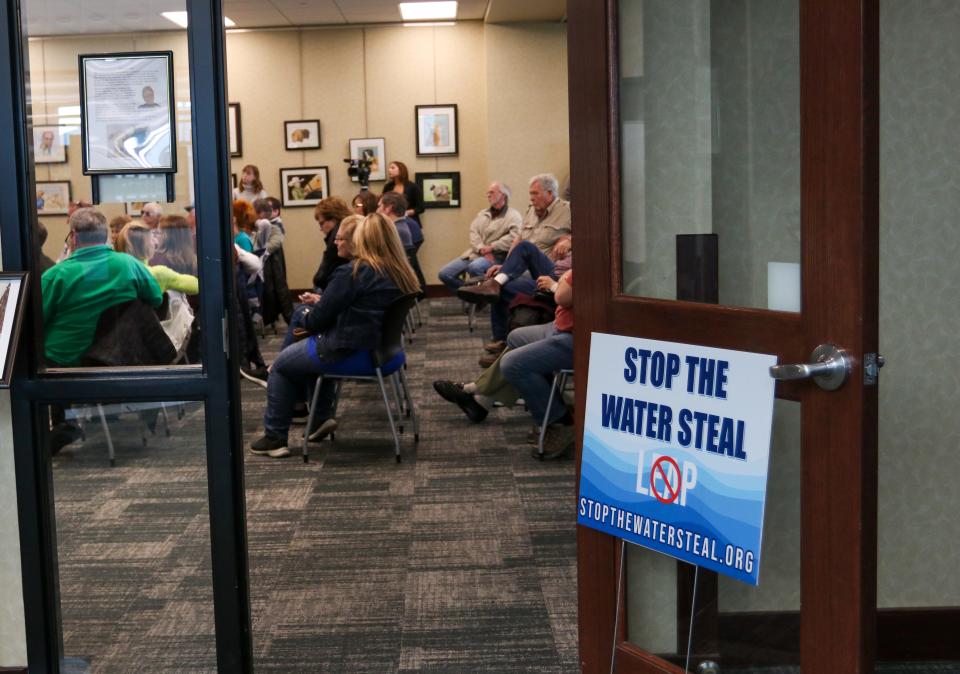
So far, the Indiana Economic Development Corp. has yet to build the water pipeline. Progress on its construction was stopped until the Indiana Finance Authority completes its water feasibility study.
Gentry speaks to the people
Gentry sat in front of Tippecanoe County residents Tuesday and answered questions curated by David Sanders, West Lafayette city councilman and the founder of Stop the Water Steal.
Many of the questions revolved around the morality of withdrawing water from Tippecanoe County without a complete understanding of the area’s water resource or the wisdom behind building an industrial district in an area like Lebanon, which lacks the water resources needed to support such industry.
Gentry's main defense was that the decisions he made benefit the long-term growth of Lebanon and his community.
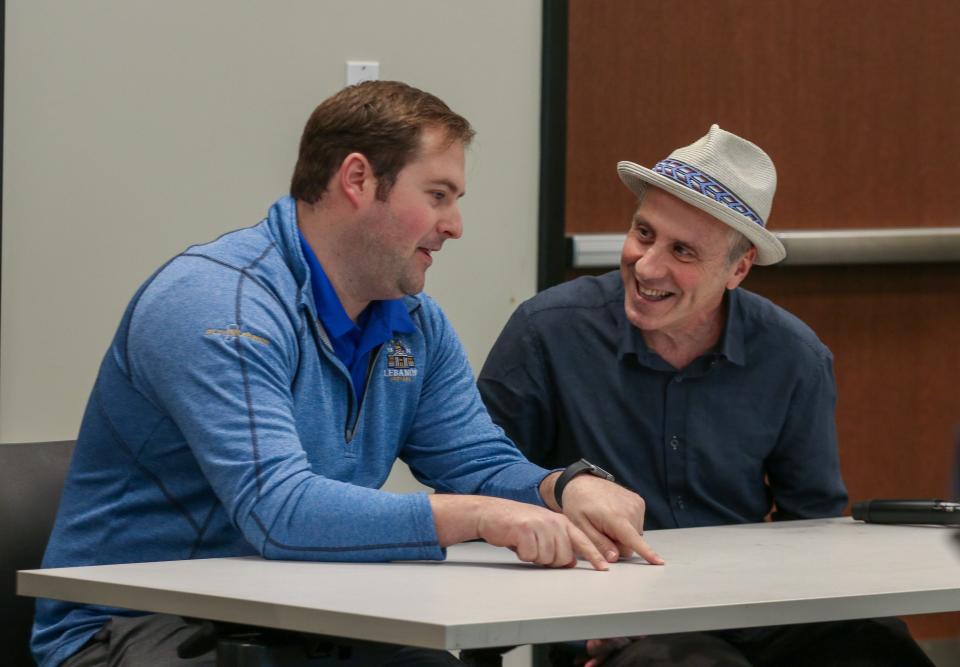
“It’s true you want to do what’s best for Lebanon, but you don’t seem to be considered about these other issues, which may be moral issues, they may be political issues, or fairness issues," Sanders said. "But it seems as if in your consideration for what’s best for Lebanon, you’re not taking into consideration for what’s best for the rest of the state or what’s best for human beings.”
Gentry explained that he has been a good neighbor in Lebanon, specifically highlighting how the city has expanded its buffer zone for the industrial zone and how the city had been transparent with this process by only approving the annexation of land during public meetings and from owners who offered their land up voluntarily.
Although later in the meeting, Gentry elaborated on the process before annexation, explaining that the Indiana Economic Development Corp. privately meets with landowners to negotiate a contract to purchase the land for the LEAP district before an owner asks to annex their land.
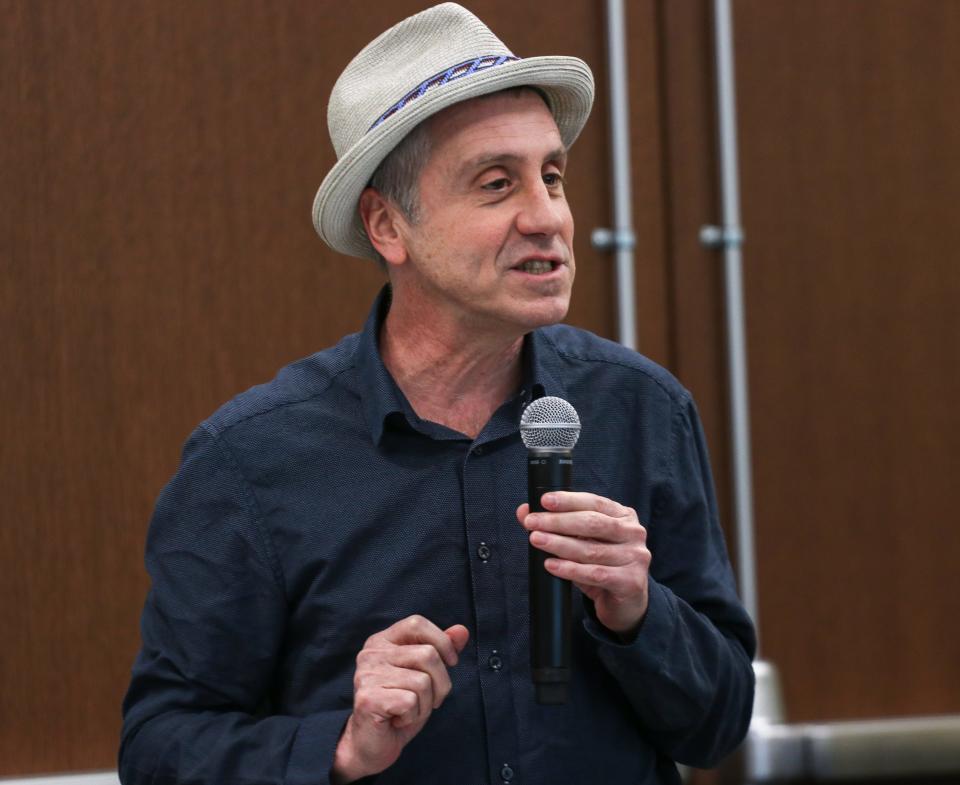
“As a leader and as someone who is trying to move the community forward, I certainly understand and can understand the perspective of people, but if you can’t also look at this situation and see what benefits this has for Lebanon and what it can do for our community, you’re not being fair either,” Gentry said.
He defended the economic development corporation's decision to consider withdrawing water from the Wabash River aquifer, highlighting that within the current laws of the state surrounding water rights, the Indiana Economic Development Corp. legally owns the water rights underneath its Tippecanoe County properties. He even noted that there are laws in place if neighbors are affected by the water withdrawal.
One resident spoke against Gentry's statement, highlighting that Indiana laws don't protect a person's right to water, but rather they outline penalties if a person or company drains or damages the water resources for a region.
Gentry also addressed people's concerns about the lack of transparency from the economic development corporation and how it ultimately handled the situation.
Gentry noted their frustration but said people shouldn’t redirect their anger at him or the city of Lebanon because he didn't propose the project. The state proposed it to him.
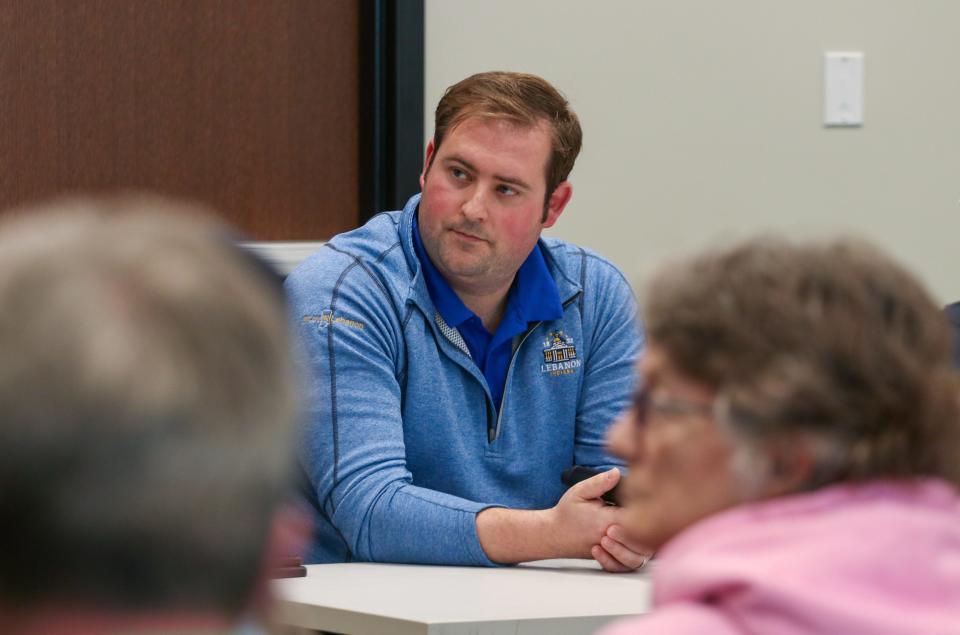
“I’m not the chamber of commerce, I’m not the governor, I’m not a state legislator. I don’t have any say over the IEDC’s transparency regulations," Gentry said.
“From a city perspective and as a mayor, I have to look at what is in the best long-term interest for my citizens and my community," he said. "And Lebanon will be far better with LEAP than without LEAP.”
Ultimately, he believed that the Tippecanoe County region could benefit from the LEAP project if the people of the region took a different approach.
“I would encourage you to stop using the term 'our water' because based on state law, that’s not the case," he said. “Certainly, I think you can bring up concerns and your concerns with the study. Advocate for a stronger study.
“When you start saying 'our water', 'Tippecanoe County’s water', it’s just not factually accurate. You just get off on the wrong foot when you say that," Gentry said.
“I think it’s a little short-sighted to think that if there’s a research park in Lebanon, Indiana, that Lafayette and West Lafayette won’t benefit from it. We have people that work in Lebanon that live in Lafayette or West Lafayette.”
Gentry defends and explains the IEDC’s reasoning for picking Lebanon
Throughout the meeting, Gentry explained how the state's economic development corporation ultimately decided to pick Lebanon as the center for its new project.
Gentry noted that he was not initially informed about the plans to construct the LEAP district within Boone County, instead hearing rumors about large parcels of farmland being purchased near Lebanon.
It wasn’t until Indiana leadership wanted to meet with Gentry that he officially realized who was behind the land purchases.
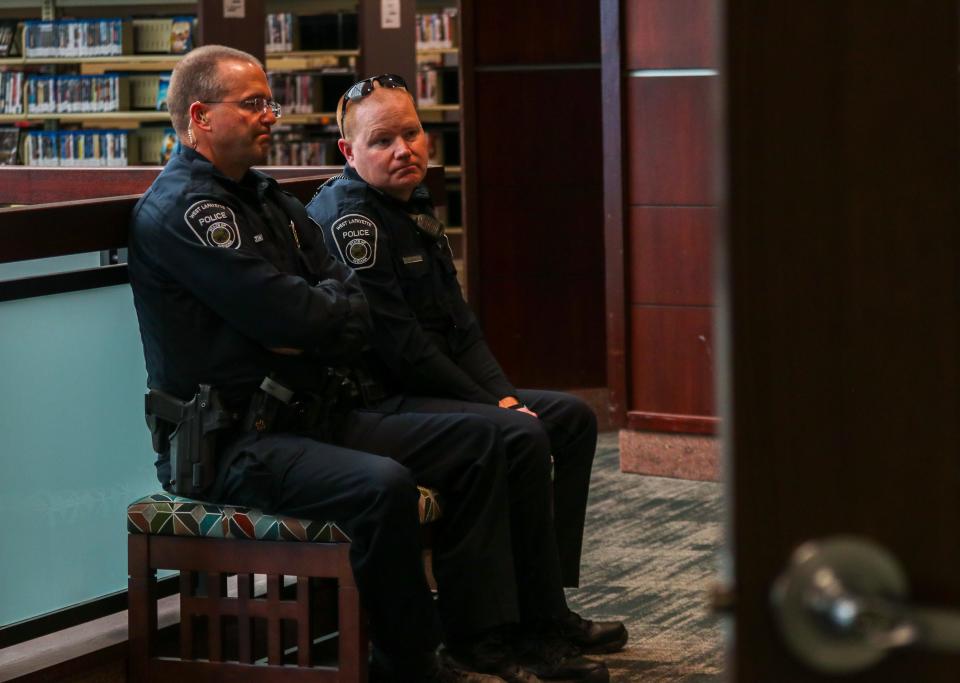
He explained that the Indiana Economic Development Corp. was interested in Lebanon because of the large parcels of land that were owned by a few owners, and the ease of acquiring land for their project.
Boone County ordinance restricted farmers from subdividing their land or selling off small parcels of their land, Gentry explained. This made it easier for the economic development corporation to buy up large swathes of land for the industrial park.
“It created this availability, this massive amount of farmland with relatively few owners. And that’s how the state was able to assemble 10,000-some acres," Gentry said.
When Gentry first met with Gov. Eric Holcomb, he was excited to hear the news about the LEAP district but highlighted that the area lacks a water source. Holcomb explained they could overcome, Gentry explained.
Indy plans to tap into the Wabash River aquifer, too
The LEAP district was also meant to kill two birds with one stone.
Gentry explained by 2050, Indianapolis would need to access additional water resources if it plans to grow. The LEAP pipeline was also meant to serve as a pipeline for Indianapolis access to water located from Northern Indiana.

“The concept was to use economic development to fund the infrastructure. By giving it to Lebanon, that would certainly be a big length of getting it to Indianapolis to solve a much larger water problem that we have looming by 2050,” Gentry said.
“That’s a looming problem. Lafayette and West Lafayette are important economic engines in the state, but Indianapolis is an even bigger one," Gentry said. "And they know that’s an issue that we’re going to have to solve long term.
“And that’s something that is being talked about, and this is the first attempt to solve that problem.”
However, Gentry also noted that the pipeline would only be built if an end user needed the water.
“The pipeline that is being constructed from Lafayette to Lebanon is not even a guaranteed thing today," Gentry said. "I think that’s being missed in a lot of this, the only reason we would need the pipeline is if we have a significant water user that comes in.”
Noe Padilla is a reporter for the Journal & Courier. Email him at Npadilla@jconline.com and follow him on X at 1NoePadilla.
This article originally appeared on Lafayette Journal & Courier: Gentry defends and explains the reasoning for Lebanon LEAP project

